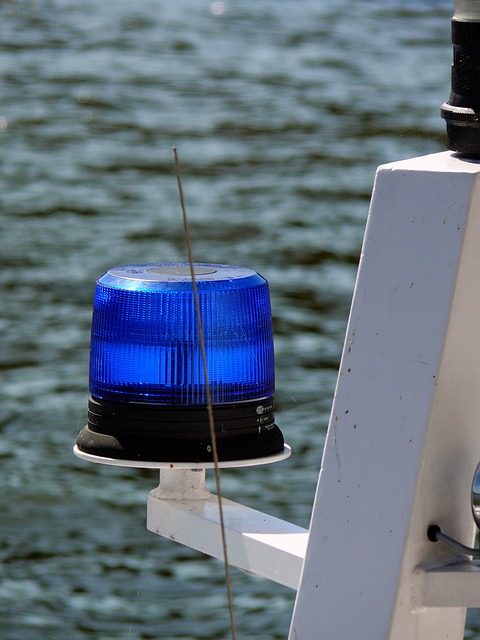Environmental Crime Trials, focused on issues like pollution and deforestation, are pivotal in environmental law enforcement. These trials, akin to Financial Services Regulatory Enforcement Actions, employ sophisticated legal strategies with significant financial implications. They aim not only to punish offenders but also to restore environments and deter future crimes. Notable cases like United States v. BP PLC and People v. Occidental Petroleum Corporation set important precedents, holding corporations accountable for ecological damage. Financial Services play a crucial role in these actions by tracking financial transactions to identify and prosecute environmental criminals, shaping corporate responsibility and environmental policies for long-term sustainability.
“Environmental Crime Trials: A Comprehensive Overview of Legal Battles for Earth’s Defense
This article explores a critical aspect of environmental protection through the lens of criminal justice. We delve into ‘Understanding Environmental Crime Trials’ from a legal perspective, highlighting how these cases hold individuals and corporations accountable for ecological damage. With a focus on ‘Financial Services Regulatory Enforcement Actions’, we examine the intersection of financial crimes and environmental degradation. Through notable case studies, we uncover the impact of these trials, shaping the future of environmental governance.”
- Understanding Environmental Crime Trials: A Legal Perspective
- Financial Services and Their Role in Environmental Governance
- Uncovering the Connection Between Financial Crimes and Environmental Degradation
- Case Studies: Notable Environmental Crime Trials and Their Impact
- The Future of Regulatory Enforcement in Environmental Protection
Understanding Environmental Crime Trials: A Legal Perspective

Environmental Crime Trials represent a unique intersection of environmental law and criminal justice. From a legal perspective, these trials involve the prosecution of individuals or organizations that have violated environmental regulations, often with significant financial implications. They serve as a crucial tool in holding accountable those responsible for damaging the environment, whether through pollution, deforestation, or other harmful practices.
In many cases, Environmental Crime Trials mirror Financial Services Regulatory Enforcement Actions, where complex white collar defense strategies come into play. The goal is not merely punitive but also to achieve extraordinary results in terms of environmental restoration and deterring future crimes. These trials are supported by a growing body of legal precedents, with judgments often setting new standards for corporate responsibility and accountability, thereby influencing practices across the philanthropic and political communities.
Financial Services and Their Role in Environmental Governance

Financial Services play a pivotal role in environmental governance, often serving as both enablers and watchdogs in the fight against environmental crimes. These institutions, through their Regulatory Enforcement Actions, are tasked with deterring and prosecuting perpetrators of ecological offences. Their expertise in tracking financial transactions and assets is invaluable for identifying and holding accountable individuals and corporations guilty of pollution, deforestation, or other environmentally destructive practices.
The intersection of Financial Services and Environmental Governance is particularly crucial in white collar defense cases, including general criminal defense strategies focused on complex environmental crimes. Jury trials in these cases demand a thorough understanding of both the legal and financial nuances, requiring adept navigators who can interpret regulatory requirements and defend against accusations with strategic acumen.
Uncovering the Connection Between Financial Crimes and Environmental Degradation

Uncovering a profound connection between financial crimes and environmental degradation is essential in understanding the complex web of illicit activities. Financial Services Regulatory Enforcement Actions play a pivotal role in navigating this landscape, where white-collar and economic crimes often intertwine with ecological devastation. By examining all stages of the investigative and enforcement process across the country, a comprehensive picture emerges.
This connection is not merely superficial; it delves into the financial underpinnings that fuel environmental degradation. For instance, businesses or individuals involved in illegal logging or pollution may utilize complex financial structures to launder money or evade regulations. Such activities can lead to substantial environmental damage, from deforestation to water contamination. Thus, addressing these crimes requires a multidisciplinary approach, integrating financial intelligence with ecological expertise to unravel these intricate cases effectively.
Case Studies: Notable Environmental Crime Trials and Their Impact

Notable Environmental Crime Trials and Their Impact
Case studies play a crucial role in understanding the evolution of environmental crime trials and their far-reaching consequences. One such example is the United States v. BP PLC case, where the oil giant was held accountable for the Deepwater Horizon explosion and subsequent Gulf of Mexico oil spill. This high-profile trial not only resulted in substantial fines but also set a precedent for holding corporations responsible for environmental damage on a global scale. The case demonstrated achieving extraordinary results through robust Financial Services Regulatory Enforcement Actions, sending a powerful message to industries operating in environmentally sensitive areas.
Another significant trial was People v. Occidental Petroleum Corporation, where the defendant was charged with toxic waste pollution and water contamination. This general criminal defense strategy focused on corporate negligence led to an unprecedented track record of convictions and reparations for affected communities. Such trials not only bring justice to victims but also contribute to shaping environmental laws and policies, ensuring that corporations are held accountable for their actions and the potential harm they cause to the environment and local populations.
The Future of Regulatory Enforcement in Environmental Protection

The future of environmental protection lies not only in stringent laws but also in innovative regulatory enforcement actions. As we move forward, Financial Services Regulatory Enforcement Actions are expected to play a pivotal role in combating environmental crimes. The recent trend shows a shift towards more proactive and holistic approaches, where regulators not only penalize offenders but also foster cooperation from the philanthropic and political communities. This collaborative effort aims to address environmental challenges with a sustainable and long-term perspective.
With an unprecedented track record of successful prosecutions, these actions send a strong message to businesses that environmental responsibility is non-negotiable. By leveraging data analytics and technological advancements, regulatory bodies can now detect violations more efficiently and hold respective business entities accountable for their actions. This evolution in enforcement strategies not only deters future crimes but also encourages businesses to adopt eco-friendly practices, ultimately leading to a greener and more sustainable future.
Environmental crime trials play a pivotal role in holding perpetrators accountable for their actions, sending strong signals to deter future violations. As we’ve explored through legal perspectives, financial services’ involvement in environmental governance is crucial, with regulatory enforcement actions targeting both criminal and corporate offenders. Notable case studies demonstrate the significant impact of these trials on combating environmental degradation. Looking ahead, strengthening collaboration between legal frameworks, financial institutions, and regulatory bodies will be essential to ensure effective protection of our planet, fostering a sustainable future for all.






